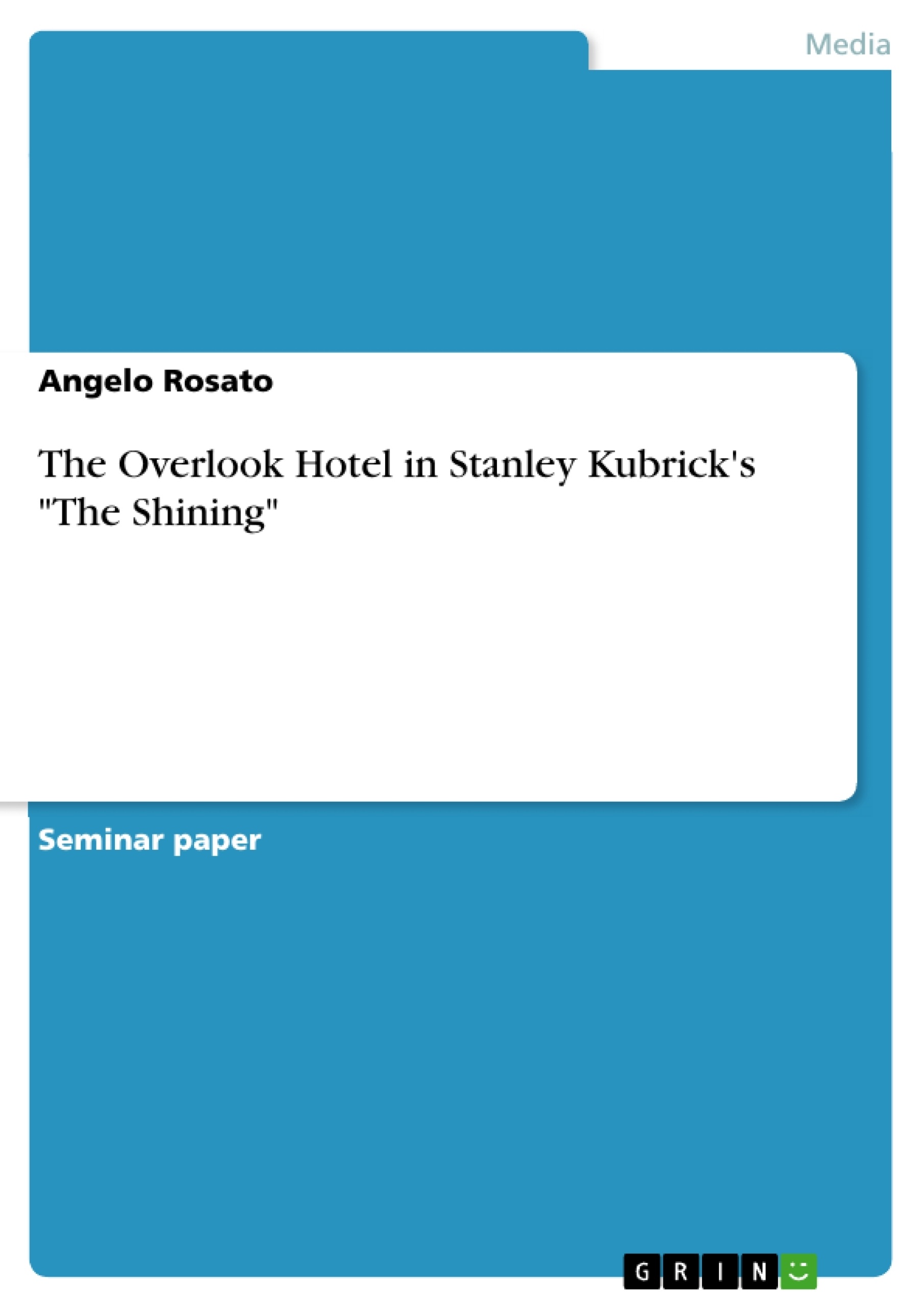Stanley Kubrick is a director known for his aesthetic beauty and phenomenal storytelling. In The Shining, Stanley Kubrick tells an over-examined subplot of the relationship between Native Americans and colonizers. In "THE OVERLOOK HOTEL", this subplot is examined in relation, specifically to, The Overlook Hotel.
Table of Contents
- Introduction
- Perspective
- The Overlook Hotel: In Dialogue
- The Overlook Hotel, As a Setting
- The Overlook Hotel, In Character
- Alternatives
- Conclusion
Objectives and Key Themes
This essay aims to analyze Stanley Kubrick's The Shining, arguing that the Overlook Hotel serves as a central symbolic representation of America's historical treatment of Native Americans. It uses an interpretive and argumentative approach to examine the film's use of the hotel as a setting, a character, and a focal point for dialogue.
- The Overlook Hotel as a symbol of American history and its treatment of Native Americans.
- The film's use of setting, character, and dialogue to convey symbolic meaning.
- Analysis of the screenplay and its contribution to the film's thematic depth.
- Kubrick's stylistic choices and their impact on the film's interpretation.
- The relationship between the film and Stephen King's novel.
Chapter Summaries
Introduction: This chapter provides background information on Stanley Kubrick's career and introduces the central thesis: that The Shining uses the Overlook Hotel to symbolically depict America's rise from the ashes of Native Americans. It outlines the essay's methodology, which combines interpretive and argumentative approaches to analyze the film. The introduction establishes the historical context of the relationship between European colonizers and Native Americans, setting the stage for the subsequent analysis of the film’s symbolism.
Perspective: This chapter delves into the life and career of Stanley Kubrick, highlighting his self-education in film and his artistic genius. It also provides crucial historical context by detailing the devastating impact of colonization on Native American populations, emphasizing the near-total eradication caused by disease, war, and cultural genocide. This background information is essential for understanding the film's deeper symbolic layers and the argument presented about the Overlook Hotel.
The Overlook Hotel: In Dialogue: This chapter focuses on the screenplay of The Shining, arguing that the dialogue itself contributes to the film’s symbolic representation of the conflict between colonizers and Native Americans. By examining specific lines of dialogue, the chapter explains how Kubrick subtly weaves in historical references and allusions to the mistreatment of Native Americans. This analysis highlights the collaborative nature of Kubrick’s filmmaking process, showing how a well-written script supports the film’s complex themes.
Keywords
Stanley Kubrick, The Shining, The Overlook Hotel, Native Americans, American history, colonization, film analysis, symbolism, screenplay, dialogue, setting, character, interpretive methods, argumentative essay.
Frequently Asked Questions: Analysis of Stanley Kubrick's *The Shining*
What is the main argument of this essay?
The essay argues that Stanley Kubrick's The Shining uses the Overlook Hotel as a central symbol representing America's historical mistreatment of Native Americans. It analyzes the film's use of the hotel as a setting, character, and focal point for dialogue to support this argument.
What are the key themes explored in the essay?
Key themes include the symbolic representation of American history and its treatment of Native Americans, the film's use of setting, character, and dialogue to convey symbolic meaning, analysis of the screenplay and its thematic depth, Kubrick's stylistic choices and their impact, and the relationship between the film and Stephen King's novel.
What is the essay's methodology?
The essay employs a combined interpretive and argumentative approach to analyze the film. It examines the screenplay, the film's setting, character development, and dialogue to uncover the symbolic meaning related to the historical context of colonization and its impact on Native Americans.
How does the essay analyze the Overlook Hotel?
The essay analyzes the Overlook Hotel in three ways: as a setting, as a character, and through the dialogue within the film. Each analysis contributes to the overall argument about the hotel's symbolic representation of America's historical relationship with Native Americans.
What aspects of Stanley Kubrick's career and life are discussed?
The essay provides background information on Kubrick's career, highlighting his self-education in film and artistic genius. It also emphasizes the historical context of colonization and its devastating impact on Native American populations, essential for understanding the film's deeper meanings.
What role does the screenplay play in the essay's argument?
The essay analyzes specific lines of dialogue from the screenplay to show how Kubrick subtly incorporates historical references and allusions to the mistreatment of Native Americans. This analysis highlights the collaborative nature of Kubrick's filmmaking process and the script's contribution to the film's complex themes.
What is the relationship between the film and Stephen King's novel explored in the essay?
While the essay focuses primarily on Kubrick's film adaptation, it acknowledges the existence of Stephen King's novel and implicitly addresses the differences and interpretations between the two works within the context of its thematic analysis.
What are the keywords associated with this analysis?
Keywords include: Stanley Kubrick, The Shining, The Overlook Hotel, Native Americans, American history, colonization, film analysis, symbolism, screenplay, dialogue, setting, character, interpretive methods, argumentative essay.
- Quote paper
- Angelo Rosato (Author), 2016, The Overlook Hotel in Stanley Kubrick's "The Shining", Munich, GRIN Verlag, https://www.grin.com/document/322567




